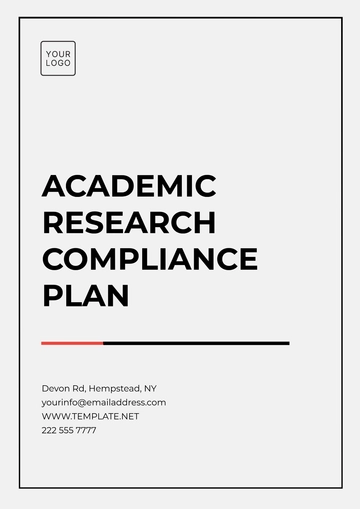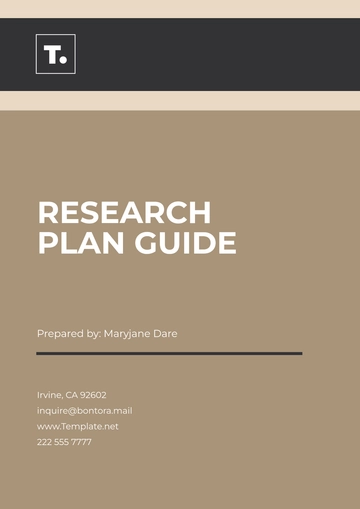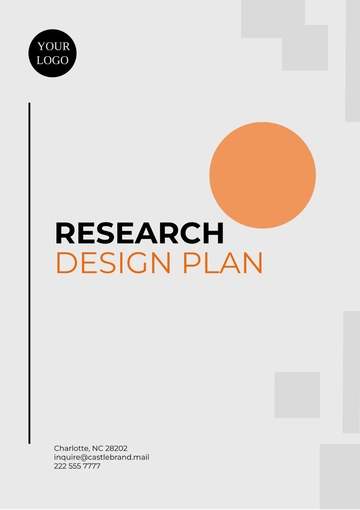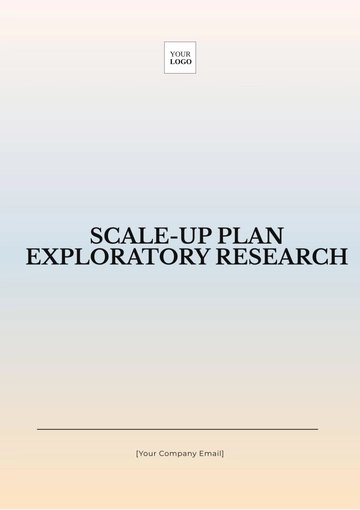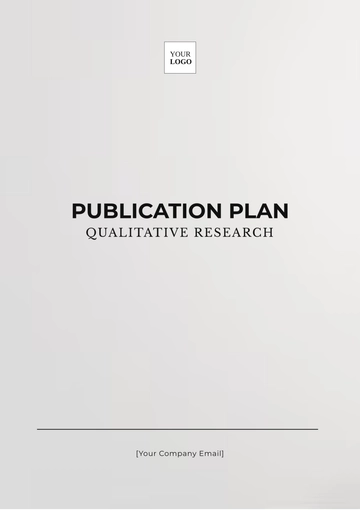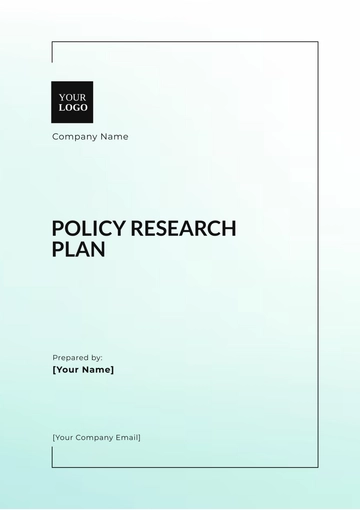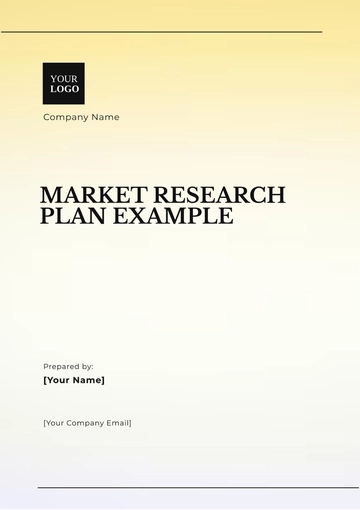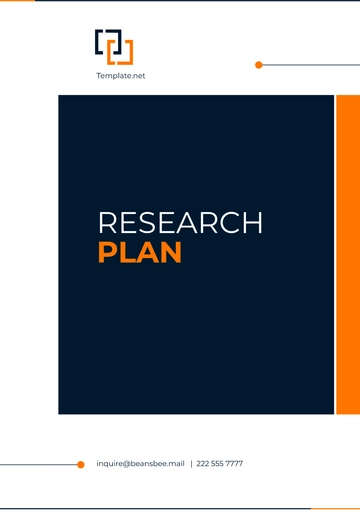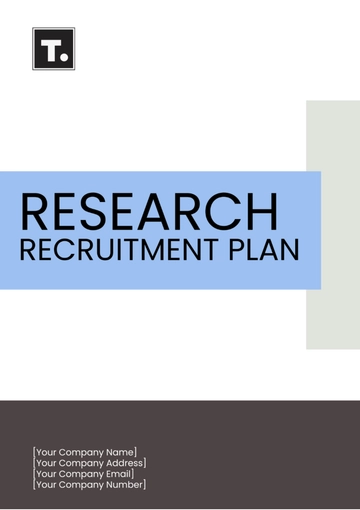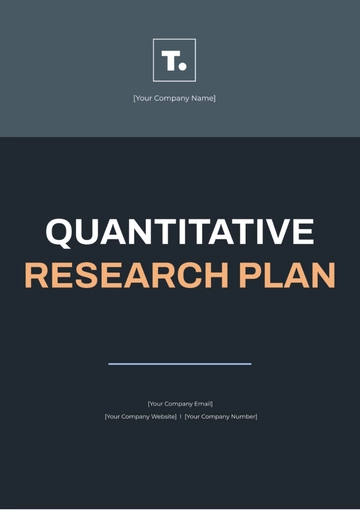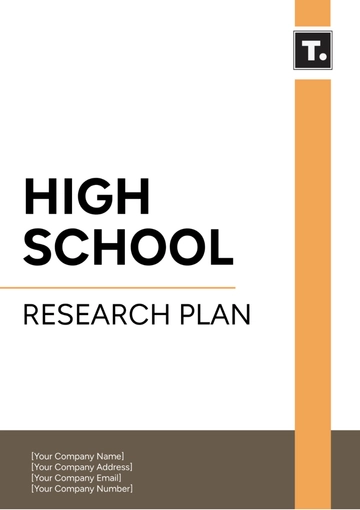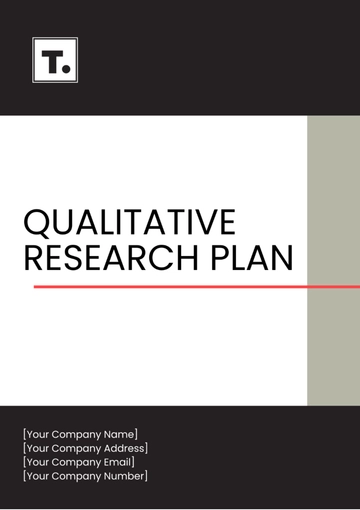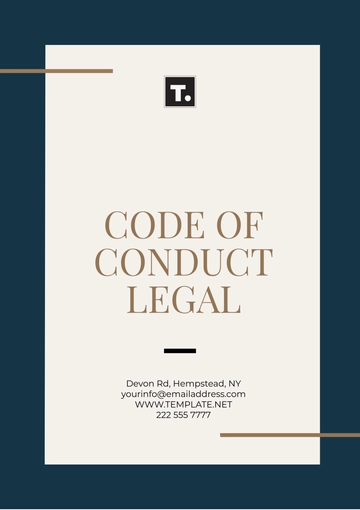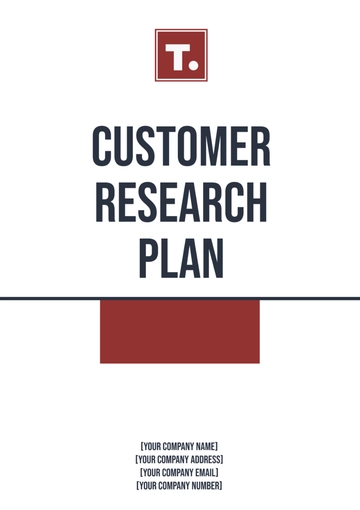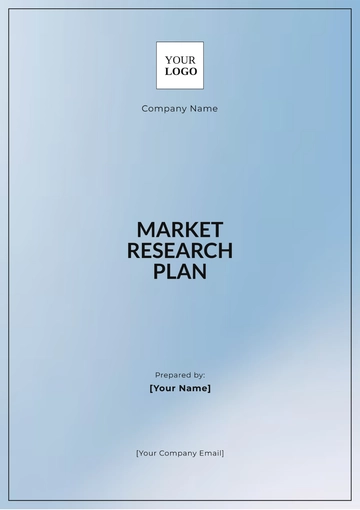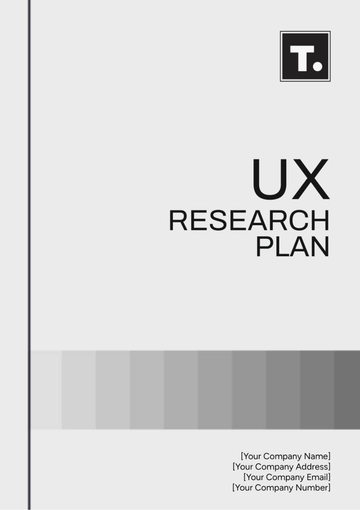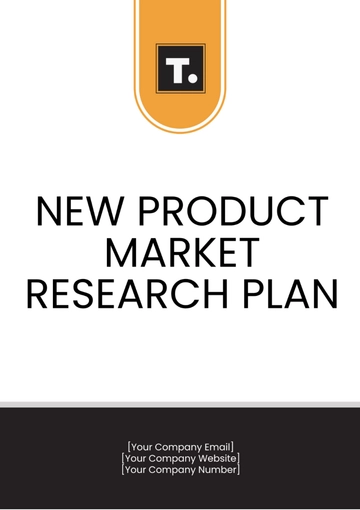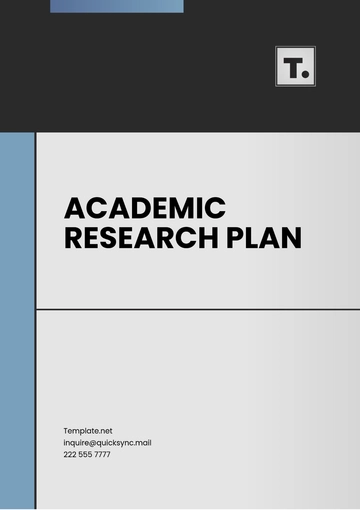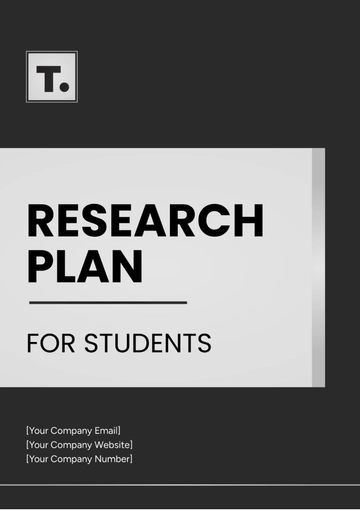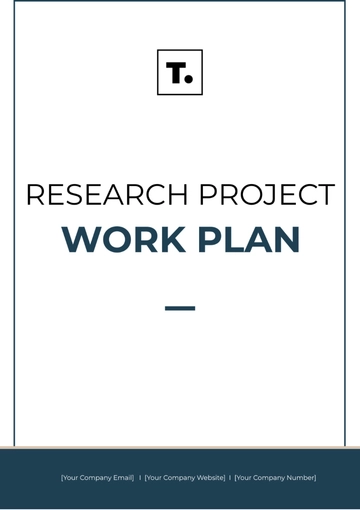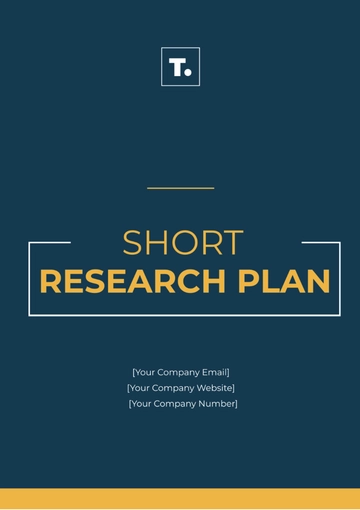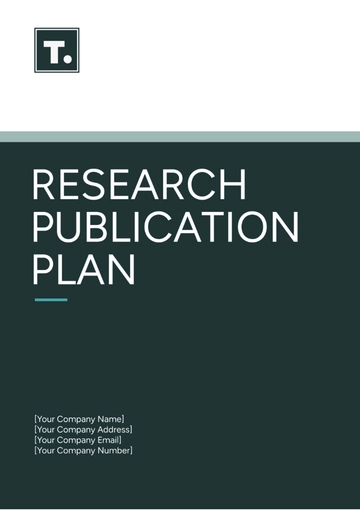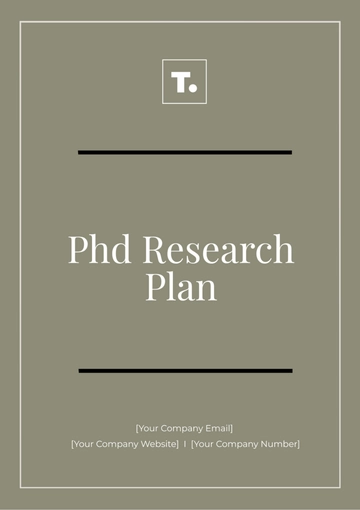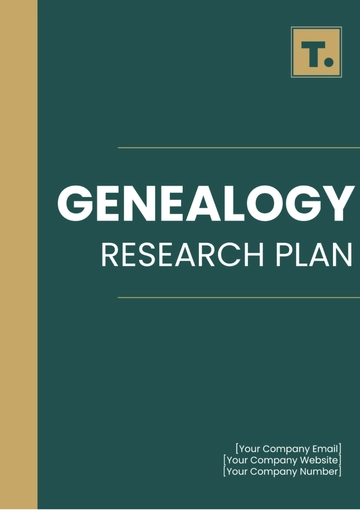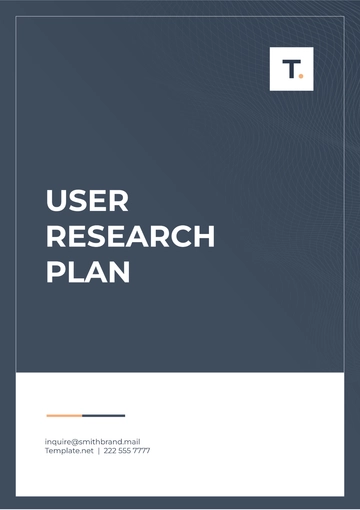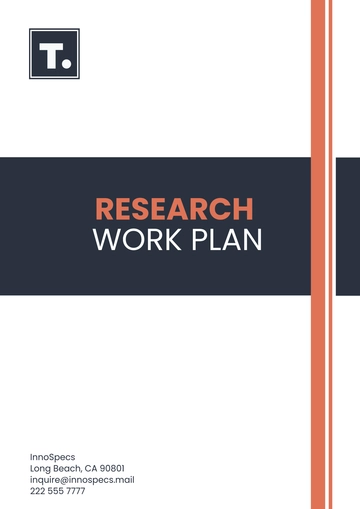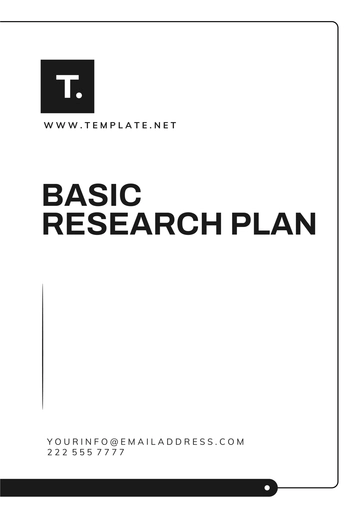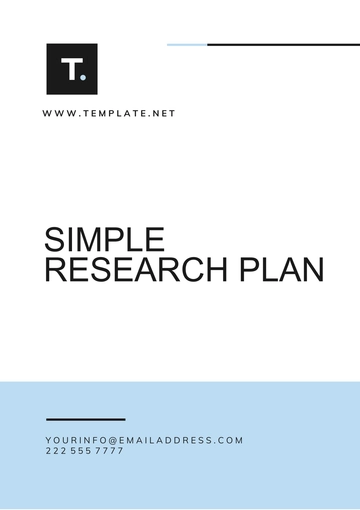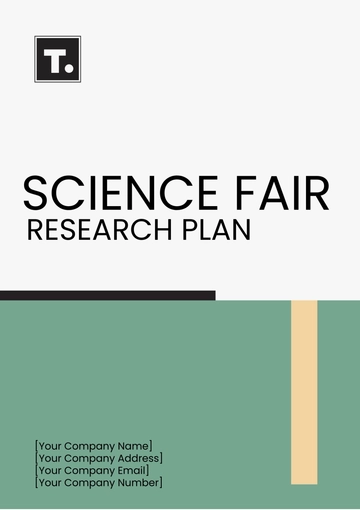Free Research Work Plan
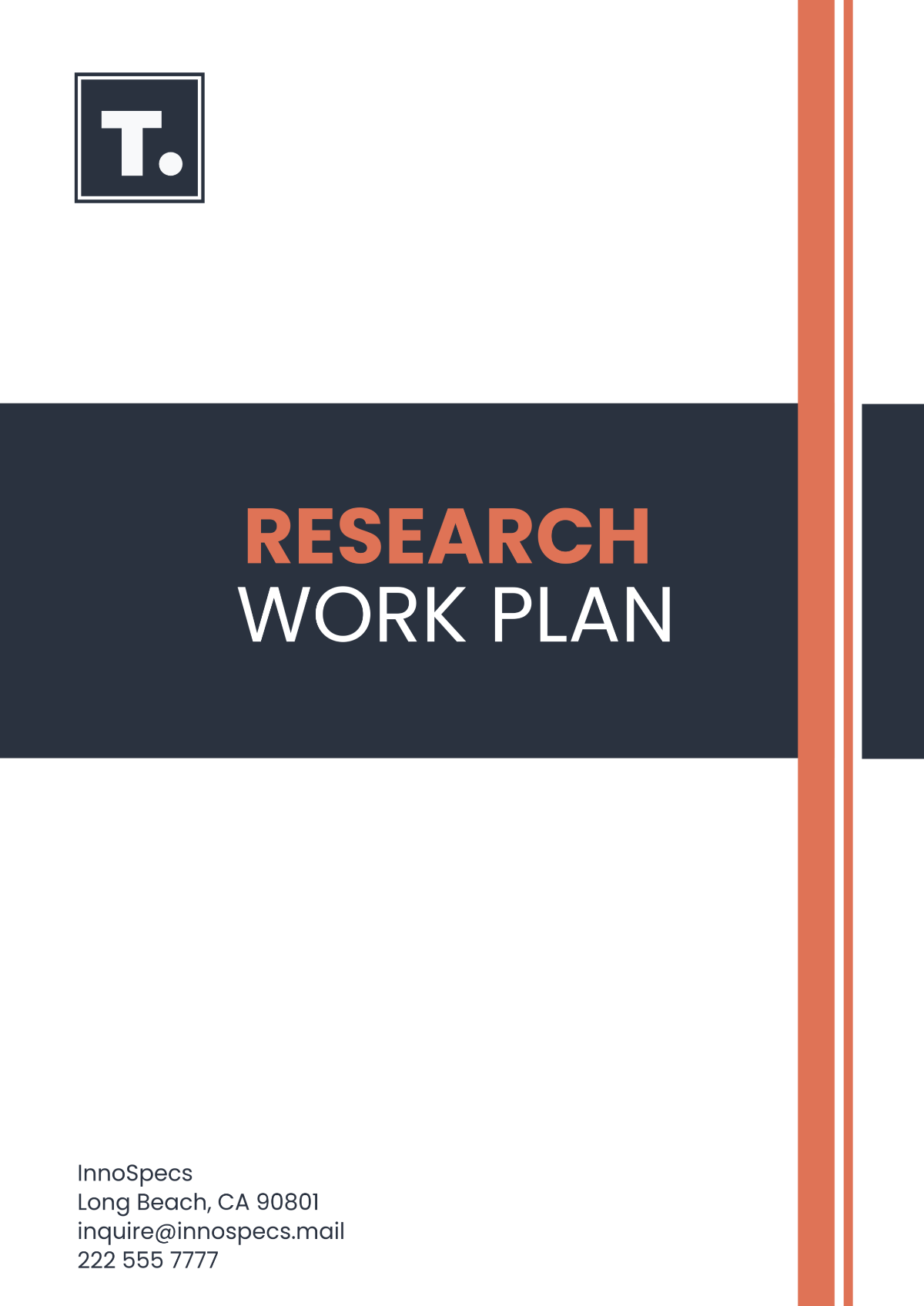
Prepared By: [YOUR NAME]
I. Introduction
The Research Work Plan titled "Unraveling the Future Trends of AI in Healthcare" aims to delve into the nuanced evolution of artificial intelligence (AI) within the Healthcare sector by the year 2050. This research is imperative as it addresses a critical gap in current knowledge and holds potential implications for stakeholders in shaping future strategies and innovations.
Project Title: Unraveling the Future Trends of AI in Healthcare
Objective: The main objective of this research is to forecast and analyze the transformative impact of AI technologies on Healthcare by 2050.
Significance: This research is significant because it contributes to understanding AI's role in driving Healthcare advancements, potentially leading to optimized processes, enhanced productivity, and strategic decision-making.
Expected Outcomes: The expected outcomes of this research include identifying key AI trends, predicting adoption patterns, and offering strategic recommendations for stakeholders in the Healthcare sector.
II. Methodology
The methodology section outlines a robust approach to gathering and analyzing data, ensuring the reliability and validity of findings.
Research Design: Employing a combination of trend analysis, expert interviews, and scenario modeling to explore plausible AI futures in Healthcare.
Data Collection: Conducting surveys among industry experts and stakeholders to gather qualitative insights and quantitative projections on AI adoption and impact.
Data Analysis: Utilizing statistical forecasting techniques and qualitative thematic analysis to interpret trends, patterns, and potential scenarios.
Resources Needed: The research requires access to AI trend analysis tools, collaboration with industry experts, and partnerships with research institutions.
III. Timelines
This section provides a detailed timeline for each phase of the research project, ensuring efficient progress and meeting deadlines.
Phase 1: Research Preparation
Duration: January 1, 2050 - January 31, 2050
Tasks:
Develop research framework and methodology
Conduct preliminary trend analysis
Secure ethical approvals and collaborations
Phase 2: Data Collection
Duration: February 1, 2050 - March 31, 2050
Tasks:
Distribute surveys and collect expert opinions
Conduct in-depth interviews with industry leaders
Gather relevant data and insights
Phase 3: Data Analysis
Duration: April 1, 2050 - June 30, 2050
Tasks:
Analyze quantitative data using statistical forecasting models
Conduct thematic analysis of qualitative data
Develop AI trend scenarios and projections
Phase 4: Reporting and Presentation
Duration: July 1, 2050 - August 15, 2050
Tasks:
Draft a comprehensive research report with findings and recommendations
Create visually engaging presentations for stakeholders
Plan dissemination and knowledge-sharing sessions
IV. Resources
This section outlines the essential resources required to ensure the successful execution of the research project focused on Healthcare AI trends.
1. Personnel
Research Team:
Dr. [Principal Investigator] (Principal Investigator): The Principal Investigator brings over 15 years of experience in Healthcare informatics and AI research. Their role involves overseeing the entire project, leading data analysis, and contributing to strategic recommendations.
Dr. [Data Scientist] (Data Scientist): The Data Scientist specializes in statistical modeling and data visualization, playing a crucial role in analyzing quantitative data and creating visual representations of trends.
[Research Assistant] (Research Assistant): The Research Assistant supports data collection efforts, manages project timelines, and assists in literature reviews and report drafting.
External Consultants:
AI experts and industry analysts: The project collaborates with external consultants comprising AI experts and industry analysts to gain diverse perspectives, validate findings, and ensure industry relevance.
2. Budget
Total Budget: $500,000
Breakdown:
Personnel Costs: $150,000
Includes salaries, benefits, and training expenses for the research team.
AI Analysis Tools and Software: $100,000
Investment in advanced AI analysis tools, software licenses, and computing resources for data processing and analysis.
Collaboration Expenses: $100,000
Costs associated with collaborations with external consultants, industry partners, and research institutions.
Contingency: $50,000
Reserved for unforeseen expenses or adjustments in the project scope.
3. Facilities
Access to advanced AI analysis tools and computing resources:
The research team has access to state-of-the-art AI analysis tools, cloud computing resources, and high-performance computing clusters to facilitate data analysis and modeling.
Collaboration with leading AI research institutions for data insights:
Collaborations with renowned AI research institutions provide access to industry datasets, expert consultations, and cutting-edge insights into AI trends and applications in Healthcare.
V. Deliverables
The deliverables section outlines the tangible outputs and outcomes expected from the research project.
Future Trends Report: A comprehensive report detailing AI trends, adoption patterns, and strategic recommendations for the Healthcare sector by 2050.
AI Adoption Scenarios: Presentation of plausible AI futures and their potential impact on Healthcare.
Stakeholder Workshops: Interactive sessions to discuss findings and implications with industry stakeholders.
Journal Publications: Submission of research findings to leading journals for academic contribution and dissemination.
- 100% Customizable, free editor
- Access 1 Million+ Templates, photo’s & graphics
- Download or share as a template
- Click and replace photos, graphics, text, backgrounds
- Resize, crop, AI write & more
- Access advanced editor
Organize research projects efficiently with Template.net's Research Work Plan Template. This editable and customizable template helps researchers outline methodologies, timelines, and milestones. Define research questions, data collection methods, and analysis procedures with clarity. Editable in our AI Editor Tool, this template streamlines the research process, ensuring systematic and rigorous investigations and insightful outcomes.
You may also like
- Finance Plan
- Construction Plan
- Sales Plan
- Development Plan
- Career Plan
- Budget Plan
- HR Plan
- Education Plan
- Transition Plan
- Work Plan
- Training Plan
- Communication Plan
- Operation Plan
- Health And Safety Plan
- Strategy Plan
- Professional Development Plan
- Advertising Plan
- Risk Management Plan
- Restaurant Plan
- School Plan
- Nursing Home Patient Care Plan
- Nursing Care Plan
- Plan Event
- Startup Plan
- Social Media Plan
- Staffing Plan
- Annual Plan
- Content Plan
- Payment Plan
- Implementation Plan
- Hotel Plan
- Workout Plan
- Accounting Plan
- Campaign Plan
- Essay Plan
- 30 60 90 Day Plan
- Research Plan
- Recruitment Plan
- 90 Day Plan
- Quarterly Plan
- Emergency Plan
- 5 Year Plan
- Gym Plan
- Personal Plan
- IT and Software Plan
- Treatment Plan
- Real Estate Plan
- Law Firm Plan
- Healthcare Plan
- Improvement Plan
- Media Plan
- 5 Year Business Plan
- Learning Plan
- Marketing Campaign Plan
- Travel Agency Plan
- Cleaning Services Plan
- Interior Design Plan
- Performance Plan
- PR Plan
- Birth Plan
- Life Plan
- SEO Plan
- Disaster Recovery Plan
- Continuity Plan
- Launch Plan
- Legal Plan
- Behavior Plan
- Performance Improvement Plan
- Salon Plan
- Security Plan
- Security Management Plan
- Employee Development Plan
- Quality Plan
- Service Improvement Plan
- Growth Plan
- Incident Response Plan
- Basketball Plan
- Emergency Action Plan
- Product Launch Plan
- Spa Plan
- Employee Training Plan
- Data Analysis Plan
- Employee Action Plan
- Territory Plan
- Audit Plan
- Classroom Plan
- Activity Plan
- Parenting Plan
- Care Plan
- Project Execution Plan
- Exercise Plan
- Internship Plan
- Software Development Plan
- Continuous Improvement Plan
- Leave Plan
- 90 Day Sales Plan
- Advertising Agency Plan
- Employee Transition Plan
- Smart Action Plan
- Workplace Safety Plan
- Behavior Change Plan
- Contingency Plan
- Continuity of Operations Plan
- Health Plan
- Quality Control Plan
- Self Plan
- Sports Development Plan
- Change Management Plan
- Ecommerce Plan
- Personal Financial Plan
- Process Improvement Plan
- 30-60-90 Day Sales Plan
- Crisis Management Plan
- Engagement Plan
- Execution Plan
- Pandemic Plan
- Quality Assurance Plan
- Service Continuity Plan
- Agile Project Plan
- Fundraising Plan
- Job Transition Plan
- Asset Maintenance Plan
- Maintenance Plan
- Software Test Plan
- Staff Training and Development Plan
- 3 Year Plan
- Brand Activation Plan
- Release Plan
- Resource Plan
- Risk Mitigation Plan
- Teacher Plan
- 30 60 90 Day Plan for New Manager
- Food Safety Plan
- Food Truck Plan
- Hiring Plan
- Quality Management Plan
- Wellness Plan
- Behavior Intervention Plan
- Bonus Plan
- Investment Plan
- Maternity Leave Plan
- Pandemic Response Plan
- Succession Planning
- Coaching Plan
- Configuration Management Plan
- Remote Work Plan
- Self Care Plan
- Teaching Plan
- 100-Day Plan
- HACCP Plan
- Student Plan
- Sustainability Plan
- 30 60 90 Day Plan for Interview
- Access Plan
- Site Specific Safety Plan
